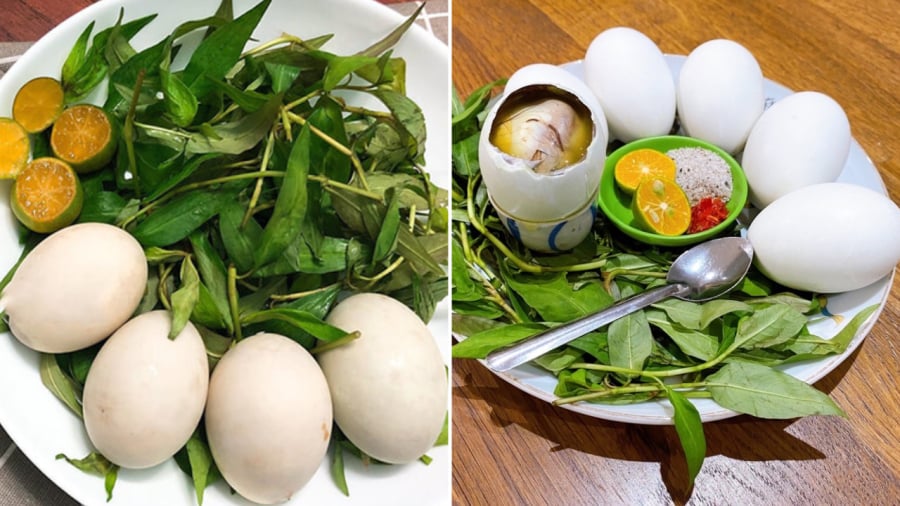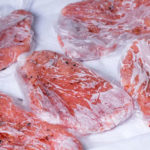Choose fresh and delicious Quail eggs
When it comes to Quail eggs, the freshest and most nutritious ones are the young ones. To identify a young egg, observe its shell closely. Look for slightly rough shells. When held, the egg should feel heavy, and when gently shaken, it should not make any noise. The best eggs are 17-20 days old. Choose eggs that are of medium size for a larger yolk.
Older Quail eggs are usually darker in color. When held, they feel lighter. When shaken, you can hear a rattling sound inside. Such eggs are often dry and hard, with a grown Quail inside, sometimes even feathers.

Boiled Quail eggs are a nutritious dish that provides valuable nutrients for the body.
Preparing the ingredients for boiling Quail eggs
For boiled Quail eggs, ginger and Vietnamese coriander are commonly served as side dishes. According to traditional medicine, Quail eggs have cooling properties, so eating them with ginger helps neutralize their cooling effect and balances yin and yang in the body.
In addition, there is another special ingredient that makes boiled Quail eggs even more delicious, and that is coconut water. Boiled Quail eggs with coconut water are popular dishes in many restaurants in Saigon. The coconut water naturally brings sweetness to the dish. Choose coconuts that have slightly firm flesh. Coconuts like that will have a sweet, refreshing taste without being sour.
If you don’t have coconut water, you can also add a little salt and sugar to the boiling water. This water also enhances the taste of boiled Quail eggs.
Boiling time for Quail eggs
The boiling time for Quail eggs is also crucial. You need to boil them long enough for the eggs to be fully cooked without becoming overcooked.
Pour coconut water into a pot, add a little salt and some crushed ginger. Turn on the stove to boil the water. When the water starts to bubble, gently lower each Quail egg into the pot. Use a spoon to gently stir the pot to shape the eggs. When the water boils, reduce the heat and simmer for about 15-18 minutes. After turning off the heat, cover the pot tightly and let the eggs sit for 5 minutes. This ensures that the eggs are fully cooked, moist, and fragrant.
For boiled Quail eggs, it is best to eat them while they are still hot to prevent them from becoming fishy. Depending on your taste, you can eat boiled Quail eggs with various spices and accompanying vegetables. Typically, in Hanoi, people crack the Quail eggs into a bowl and add spices when eating. People often eat Quail eggs with a little salt, sliced ginger, and Vietnamese coriander. Some people eat Quail eggs with garlic soaked in vinegar.
In the south, people usually place the eggs in a small cup (a communal cup). Then, diners use a spoon to crack the eggshells and scoop out the eggs along with various spices.
Although Quail eggs have a delicious flavor and are nutritious, it is important to eat them in moderation. It is recommended to consume a maximum of 2 eggs and 5 grams of Vietnamese coriander and 5 grams of fresh ginger (for adults) per serving. Children aged 5 and above can eat half a Quail egg per serving and no more than twice a week. For children under 5 years old, their digestive system is not fully developed, so it is necessary to limit their intake of Quail eggs to avoid stomach discomfort and indigestion.





































